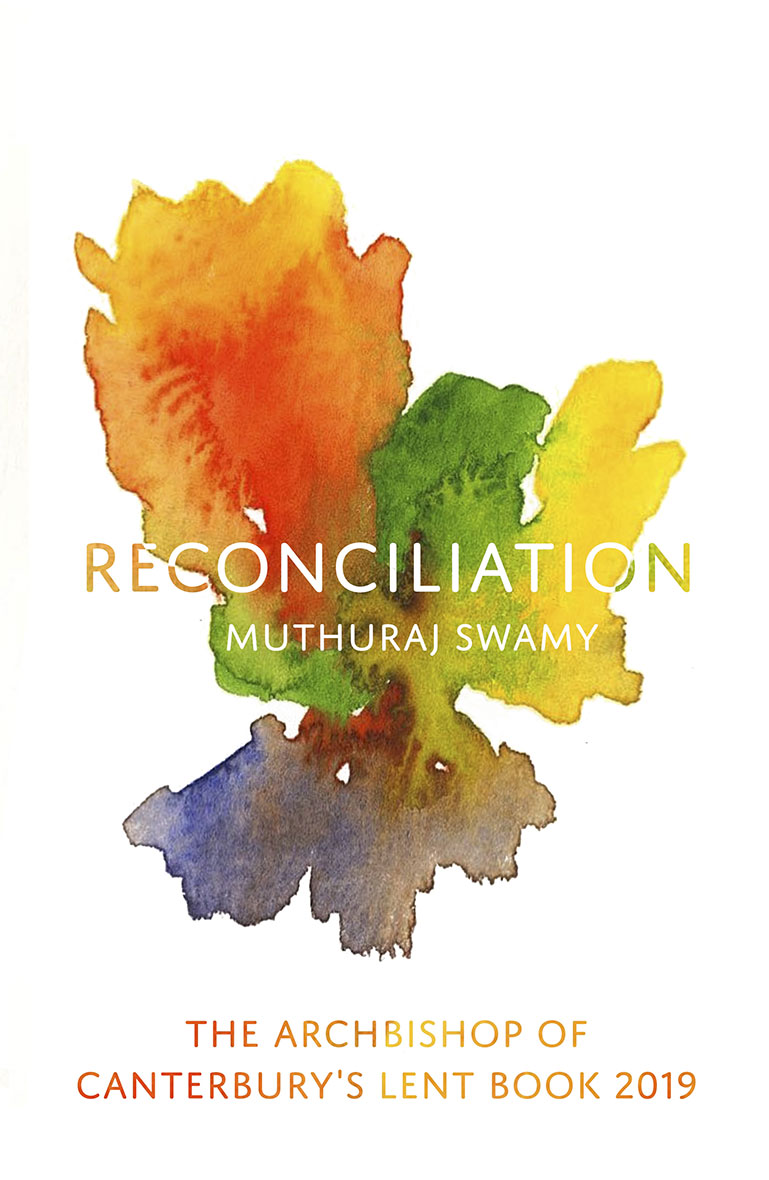 Several theological terms risk being so vague that they drift toward meaninglessness. Appeals to the centrality of love, for example, have the danger of being vacuous unless qualified. Reconciliation is another such term, prominent in usage but slippery in content. As with love, few might admit to being opposed to reconciliation, but equally few may offer a robust, pithy, theologically cogent definition.
Several theological terms risk being so vague that they drift toward meaninglessness. Appeals to the centrality of love, for example, have the danger of being vacuous unless qualified. Reconciliation is another such term, prominent in usage but slippery in content. As with love, few might admit to being opposed to reconciliation, but equally few may offer a robust, pithy, theologically cogent definition.
Muthuraj Swamy’s new book, with its stark single-word title, Reconciliation, is the Archbishop of Canterbury’s Lent Book for 2019. Archbishop Justin Welby’s introduction is instructive, reminding readers that reconciliation is one of his three stated priorities in office. Quite simply, “Reconciliation is the Gospel,” Welby writes. He regards it as the restoration of brokenness caused by sin: “There is good news because from the first stirrings of dissent, God has been working to mend, to heal and to reconcile.”
Swamy later quotes another of Welby’s reflections that reconciliation is “one of our greatest needs and toughest challenges as human beings. In a world plagued by conflict, division and indifference, the Church has a crucial role to play as a community of reconcilers.”
Swamy has personal experience in such initiatives, both through years of interreligious dialogue in his native India and more recent work as director of the Cambridge Centre for Christianity Worldwide. He also manages the Theological Education for Mission project within the Anglican Communion. He brings these international perspectives to bear in a book that offers 40 biblical reflections arranged that they may be read daily through Lent.
But as with any book considering themes of reconciliation, there is a lingering question about how easy it is to move from a theological and salvific understanding of reconciliation in Christ to a more universally understood notion of reconciliation as peacemaking among human beings. Swamy is certainly alive to such considerations, and grounds his reflections in 2 Corinthians 5:17-20 and Colossians 1:19-22. He writes that both passages offer “three essential facts about reconciliation for and by Christians.”
These are, first, the foundational quality for any Christian of personal reconciliation to God in Jesus Christ. He then suggests that Paul’s writing of God reconciling all things to himself “implies the process of reconciliation among all things as well.” Third, to be involved in such activity is “a responsibility and a vocation.”
Swamy then identifies five specific aspects of reconciliation. First, “God’s reconciliation,” in which reconciliation with God through Jesus Christ is foundational for a ministry of reconciliation. Second, “our reconciliation with God,” which builds on the first but emphasizes that “it is up to us to turn towards God and live in a good relationship with God and with our fellow human beings.” Third, “our reconciliation with others” equates to “proper and just relationships with our neighbours.” Fourth, “reconciliation within ourselves” requires learning “to relate to our own selves,” including nurturing inner peace. Finally, he writes of “our efforts to reconcile our fellow human beings with God and to promote reconciliation among our neighbours.”
I list these in full as it seems important to underline the theological foundation for Swamy’s work. He acknowledges that his approach is wide in scope, “building and strengthening relationships with radical openness to the other.” His biblical reflections are engaging, and the questions posed at the end of each chapter are often finely tuned. But questions remain about whether this broad underlying definition of reconciliation is sufficiently clear in theology.
Most of the book is focused on reconciliation as relationships restored, or the consideration of personal factors that might inhibit a willingness to participate in such ministry. I believe more could have been said about how one moves from Paul’s notion of reconciliation in Christ to a wider work of reconciliation in the world (which may be more reflective of a call to neighborly love than a biblical definition of reconciliation). Undoubtedly the gospel has a call to peacemaking and restored relationships at its heart, but this is not the same as the call to be reconciled to God, and it is not immediately clear that Paul imagines a “ministry of reconciliation” to be primarily aimed at peacemaking regardless of the Christian commitment of the parties involved.
Readers engaging daily through Lent with these reflections, however, will find themselves stirred to reconsider themes at the heart of Christian faith and practice.
This review first appeared on Covenant and we are grateful for permission to reproduce it here on Fulcrum.

Christopher Landau is postgraduate pastor at St Aldates, an hon chaplain at Christ Church cathedral, and McDonald Chaplain with the Oxford Pastorate. His Oxford DPhil is on disagreement among Christians – ‘A Theology of Disagreement’.

I am finding the illustrations of reconciliation as relationships restored, very helpful (‘still some pages to go during my Lenten reflections). Isn’t loving my neighbour or even an enemy, surely a big step towards better loving God?
Just 190 pages over 40 days is giving me encouraging pointers for which I am grateful.
Comprehensive dogmatics reflections, through reading Karl Barth’s 4-volume thesis on the topic, will take me much longer!